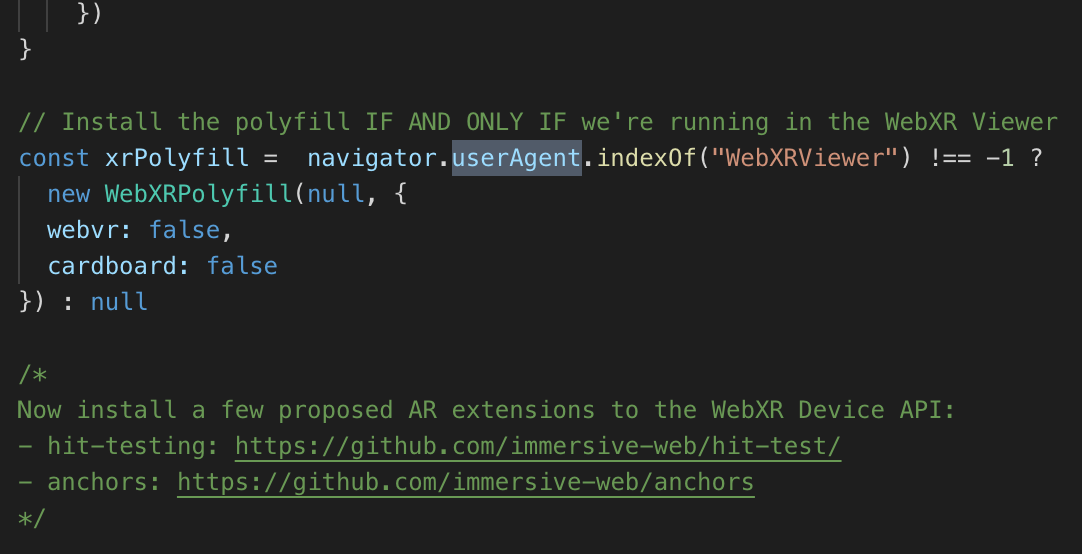What's up with the userAgent string?
I originally tweeted something about this, but two days later I'm still amused, so I'm dropping it here for safe keeping.
While working on our WebXR Viewer (XR focused iOS browser app), I made the mistake of finally looking seriously at the browser navigator.userAgent string, and asked my co-workers at Mozilla "WTH is up with that??!" (figuring someone would regale me with the history of how it evolved to where it is.
And @larsberg obliged, pointing me at an amusing and informative "history" of the evolution of the string.
And now I’m informed, but not amused.
But I did like the ending:

For context, I was doing this because I wanted to add something to the userAgent string for the WebXR Viewer, to control when/if our javascript API for WebXR would be installed.
Manually loading the javascript for the browser's WebXR API this way will go away when the API is done, and automatically set up inside the browser, but for development and testing I wanted to be able to load it in my test programs, but have those also work elsewhere.

Of course, now I realize that adding a little something to the userAgent string has a long and dignified history, so there's that ...